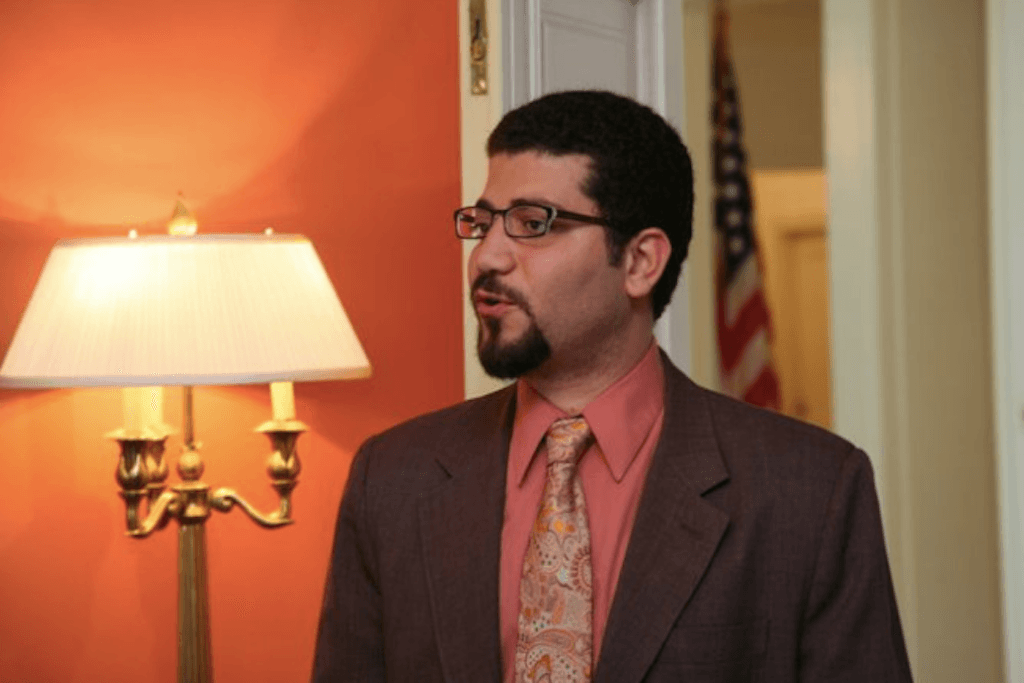NGO worker returns to Egypt to stand trial, faces prison
Mansour faces years in prison if convicted on what many believe to be politically motivated charges.
Sherif Mansour is about to touch down in Cairo, where he will stand trial in an iron cage, likely be found guilty, and sentenced to up to five years in prison.
And the way in which Mansour appears to be facing the charges against him with inegritry and courage stands in stark contrast to the scowl of the deposed Hosni Mubarak, who was convicted to a life sentence this weekend for failing to stop the killing of civilian protesters, and the thin smiles of his sons, who are expected to walk on corruption charges.
Mansour is one of 43 human rights workers who were charged with accepting foreign funds illegally and operating non-governmental organizations, or NGOs, without licenses during the period immediately following the resignation of former President Mubarak. Mansour is now returning to his native country with the distinct knowledge of what awaits him.
“The Egyptian authorities are using a discredited Mubarak-era law to prosecute nongovernmental groups while proposing even more restrictive legislation,” said Joe Stork, deputy Middle East director at Human Rights Watch. “The government should stop using the old law, halt the criminal investigations, and propose a law that respects international standards.”
With the country’s first ever open democratic election looming, the old regime seems to be grasping at straws to stay in power. Investigating NGOs is widely seen as an assault on civil society and a desperate crack down on activists and rights advocates pushing for more government accountability in Egypt.
In December, the offices of at least 10 organizations were raided by Egyptian authorities, including Freedom House, the non-profit which Mansour worked for. Many see these actions as strong-arming foreign organizations, and asserting the power of the Egyptian military. Freedom House, the National Democratic Institute (NDI) and the International Republican Institute (IRI) are funded by the U.S. government and were on the list of offices raided.
As critics of the regime are quick to point out, it is almost laughably ironic that the Egyptian military, which receives more than $1 billion in aid from the United States, is attempting to prosecute these NGOs for accepting ‘foreign funding.’
According to an article in the Guardian following the raids, Egypt's Supreme Council of the Armed Forces "accused local non-governmental organizations of receiving money from abroad, and has argued that the recent unrest in the country is by 'foreign hands'."
The accused workers, including Mansour, were banned from leaving Egypt, and ultimately paid $5 million in bail before fleeing back to the U.S. IRI's director Sam LaHood (son of Secretary of Transportation Ray LaHood) was also accused of operating an NGO illegally and has been charged along with Mansour. However, IRI has not stated whether he and the rest of the American staff charged with the group will be returning to Cairo.
Mansour is insistent that he return to Egypt to stand trial on moral grounds and maintains that he did everything he could while in Cairo to register Freedom House for permission to operate in the country.
In a statement released this week, Mansour said he knows how much his family is hurting because of his decision to go back, but he feels it's his responsibility to stand for his beliefs as a human rights worker.
Mansour wrote, "I am returning to Egypt to stand side by side with my Egyptian colleagues from Freedom House—as well as the Egyptian and American workers from the other organizations—because I know these accusations were brought illegally and with political motivations." he said. "Every day civil society workers and activists are being threatened, harassed, and brought to face false charges in courts. We cannot hope for a peaceful, stable and flourishing Egypt if we do not fight for an independent and strong civil society that will demand government accountability."
The situation has strained ties between the Egyptian government and the U.S., threatening American aid money to the country, and resulting in Mansour losing his job at Freedom House, which believes his return will inflame the situation, according to an article in the National Journal.
Despite knowing he will likely spend time in prison, and his disappointment with the U.S. State Department's inability to help, Sherif believes his actions will serve the greater good:
"I can say with confidence that this case will set a precedent—for better or worse—about the way the Egyptian government will treat civil society in the future."
The story you just read is accessible and free to all because thousands of listeners and readers contribute to our nonprofit newsroom. We go deep to bring you the human-centered international reporting that you know you can trust. To do this work and to do it well, we rely on the support of our listeners. If you appreciated our coverage this year, if there was a story that made you pause or a song that moved you, would you consider making a gift to sustain our work through 2024 and beyond?
